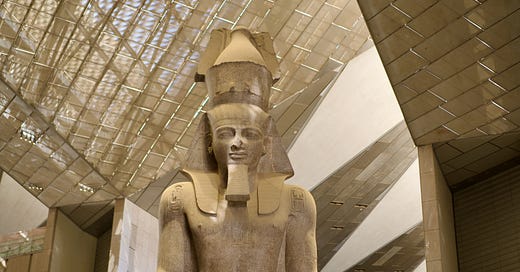After walking through a gallery of stone voices and suspended time inside the Grand Egyptian Museum, many of us gathered for dinner — old friends, new questions, one long table.
The food was rich and comforting. But it was the conversation that would stay with me that felt like a true koffeemocha moment.
We began, as many of us do at this stage of life, with our parents. We compared notes, not about their birthdays or ailments, but about how they aged. The differences. The declines. The quiet, unyielding march of time.
Soon, the conversation turned inward.
How do we prepare for our own mortality, not as a distant abstraction, but as something real, ultimately approaching, and profoundly personal?
We spoke not of death per se, but of its precursors: the thresholds we fear most.
Where is the line between healthspan and longevity?
How do we recognize the moment when we are no longer fully ourselves, even if we are still biologically alive?
I posed a question to the group:
Is there a way to know when we've crossed from living to merely lasting?
One friend shared a quiet practice. Every month, during the first week, he pauses to ask himself:
“Can I remember and recount what I did on the first day of the previous month?”
It’s a private check-in. A monthly mirror.
He then said, with calm certainty, that if he were ever to cross a boundary where consciousness no longer met dignity…
He would choose euthanasia. On his own terms. Without burdening those around him.
He wasn’t being dramatic. He wasn’t trying to provoke.
His wife sat beside him, not startled, not silenced, but steady. She had already heard this before.
What moved me was the clarity.
The bravery to say it, openly, at the dinner table, in the presence of friends and love.
No one dismissed it.
No one recoiled.
We simply listened, and, somehow, entered the same space.
Perhaps it was the weight of the day.
We had just stood before stone kings and funeral stelae, each carved with prayers for eternity.
And here we were, flesh and breath, daring to speak of endings not with fear, but with intent.
We didn’t make a pact. We didn’t draw conclusions.
But we held the question together:
What does it mean to live well, before we forget how to ask?
And maybe that’s the real offering.
Not stone.
Not longevity.
But the courage to talk about the fragile edge of our humanity, while we still can.




